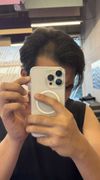community Collagen/Vitamins/Supplements and skin-care routine while on Minoxidil?
Minoxidil users discuss skin-care routines to counteract side effects like dark circles and dull skin. Recommendations include vitamin C, potassium, collagen, retinol, nizoral shampoo, and emu oil.

